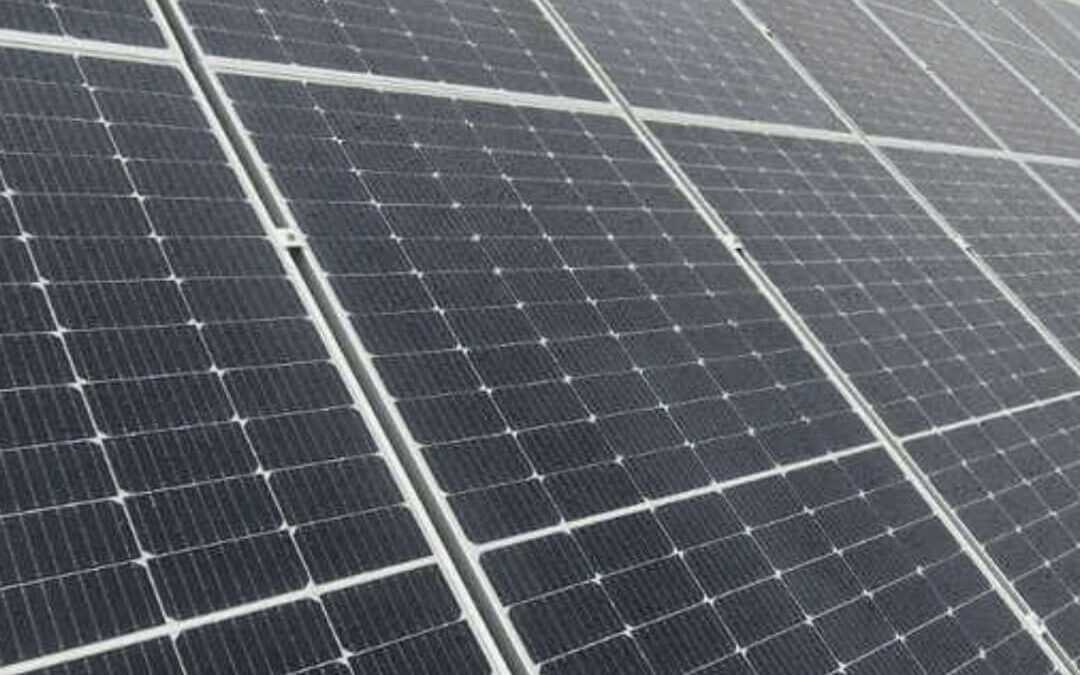☀️ There is currently no maximum number of solar panels you’re allowed to have in the UK
☀️ Any solar PV system installation above 3.68kWp must have permission beforehand (DNO G99)
☀️ Buying an oversized solar PV system is less cost-effective and will produce energy you don’t use
Solar panels are becoming more affordable, while electricity bills remain high. You might be wondering what the maximum number of solar panels you can install on your property is, whether that is on the roof of your house, garage or shed, in your garden or on land that you own.
This blog post will help you understand the legal restrictions on the number of solar panels you can have, the size of your solar panel system, and the disadvantages of having a large solar array.
If you are interested in going solar, you can contact us for a free no-obligation quote using the contact form at the bottom of the page or you can call us at NXTGEN Energy on 01268 928 690.
Is there a maximum number of solar panels you can have?
The maximum number of solar panels you can install is unlimited, as long as you have enough space for them. You can fill up your roof, your garden or your land with as many solar panels as you can fit, even if you have a lot of acres of land.
It should be noted that even though a roof can hold a certain amount of solar panels, they should only be placed on certain roof areas to ensure they get enough daylight to generate the maximum solar energy efficiently.
The only thing you need to do is to ensure that your solar panels are installed safely, connected correctly to your power supply and the National Grid, located entirely on your property, and follow any local planning permission rules.
There is currently no rule, regulation or law in the UK that limits the number of solar panels you can have.
Is there a maximum amount of solar energy you can produce?
You can produce as much solar energy as you want, but you need to let your Distribution Network Operator (DNO) know if you plan to install a system with more than 3.68 kWp of peak power capacity per phase.
Most homes in the UK have a single-phase electricity supply, which means they need to get approval for any solar PV system above 3.68kWp (Kilowatt Peak which is the amount of power produced under standard laboratory test conditions, which broadly equate to bright sunshine. So a 3.68kWp solar PV system will produce 3.68kW of electrical power in bright sunshine).
UK homes or businesses with a three-phase electricity supply can install up to 11.04kWp without prior approval, as they have 3.68kWp for each phase (3.68kWp per phase x 3 = 11.04kWp).
If you want to upgrade your UK home from a single-phase electricity supply to a three-phase electricity supply, it will cost you between £8,500 and £10,000.
Getting approval from your Distribution Network Operator (DNO) is not a big deal. Systems under 5kWp are usually approved without any problems quickly, although this year there has been some delays due to the increased numbers of homes getting solar PV systems installed in the UK as the price of solar panels continues to drop and they become more efficient.
Systems above 5kWp may need some extra safety checks, but they are still likely to be approved, although it may take some time, which is normally a few weeks.
How many solar panels can the average roof hold?
An average sized 3-bedroom house in the UK has enough roof space for about 20 solar panels.
The roof area of this kind of house is usually about 70 m², which can fit four solar panels in each of the five rows.
Each solar panel is about 2 m² in size, but there has to be some space between them and the roof edge, and between each row. This is because the installer has to follow the legal requirement of leaving 20 cm of space around the panels, and also because the panels need 15 cm of space between the rows to adjust to the temperature changes throughout the year.
The weight of the solar panels is not a problem for UK roofs, as they can hold much more than the panels need. The average solar panel needs only 8.6 kg per square metre, while our roofs can support at least 108 kg per square metre.
How many solar panels should you have?
An average 3-bedroom home should install 12 solar panels, based on the average electricity consumption and solar usage of UK households. This means that the home uses about 2,700 kWh of electricity per year, and 50% of it comes from solar energy.
A smaller home with one bedroom should have eight solar panels, while a larger home with four or five bedrooms should have 16 solar panels, but your installer will calculate the amount of solar panels you need based upon your energy usage throughout the year and the roof space available to make sure you don’t produce more solar energy than you can use.
Are there downsides to large solar panel systems?
Large solar panel systems have no drawbacks, except for the initial cost. But you need to make sure that the solar PV system matches your electricity needs.
If your electricity consumption is high – for example, more than 4,000 kWh per year – you can save hundreds of pounds on your energy bills every year with solar panels.
But if you get a solar panel system that generates much more electricity than you can use, it will take longer for you to recover your initial investment.
You will still earn money by selling your surplus energy back to the National Grid, through the Smart Export Guarantee (SEG) scheme, but you will probably get less than what you pay the National Grid for electricity.
This means that for every extra solar panel you install beyond the optimal number for your home, you will need 0.4 years more to break even, on average.
To find out what size solar panel system is right for you, just use our solar panel calculator.
Conclusion
You have learned the maximum number of solar panels you can install in the UK and the related information you need. The next step is to go solar and start saving money on your energy bills and beat the energy price rises in the UK.
Feeling motivated and ready to get a free no-obligation quote for a solar PV system? Want to learn more? Your best option is to talk to one of our friendly solar energy experts on 01268 928 690 or click on the ‘Enquire Now’ button below and we will help you find the right solar PV system for your home and budget.
Frequently Asked Questions about Maximum Number of Solar Panels
You can have as many solar panels as you like on your property, as long as you follow the local planning rules. You need to check that your roof and/or land can accommodate all the solar panels you want to buy.
You can also generate as much power as you want with your solar panels, but there is a condition. If your system has more than 3.68 kWp of capacity, your installer needs to get approval from your Distribution Network Operator (DNO) before installing it, unless you have a three-phase power supply.
Having more solar panels than you need will reduce the cost-effectiveness of your system. This will make it take longer for you to recover the cost of your solar panels, and lower your overall return on investment.
You can use our solar panel calculator to estimate the optimal number of panels for your home.
Before installing your solar panels, you need to get approval from your Distribution Network Operator (DNO) if your system will have more than 3.68 kWp of capacity for each phase. This applies to most UK homes, which have single-phase power supply. For systems over 3.68 kWp, you have to ask for permission in advance.
Getting approval from your DNO is usually not a big deal or a long process, though.
You can add more solar panels without any problem, as long as your solar system does not generate more than 3.68kW (or 16 Amps). This is the limit for most UK homes. If you want to go beyond this limit, you have to fill in a G99 form and send it to the Distribution Network Operator (DNO).
Latest Solar Panel Installation Posts
- Why Leisure Centres Should Invest in Solar Panels
 In recent years, the concept of sustainability has become increasingly vital in various industries, including leisure centres. As the global focus shifts towards environmental conservation and renewable energy sources, leisure centres are recognizing the importance of investing in sustainable practices to reduce their operating costs and their carbon footprint. One such sustainable solution gaining traction… Read more: Why Leisure Centres Should Invest in Solar Panels
In recent years, the concept of sustainability has become increasingly vital in various industries, including leisure centres. As the global focus shifts towards environmental conservation and renewable energy sources, leisure centres are recognizing the importance of investing in sustainable practices to reduce their operating costs and their carbon footprint. One such sustainable solution gaining traction… Read more: Why Leisure Centres Should Invest in Solar Panels - Is it worth buying solar panels in Basildon, Essex?
 ☀️ Over 10,000 homes in Basildon have a solar panel system installed. ☀️ You’ll normally break even on solar panels in less than 10 years. ☀️ A 3.5kW solar panel system will cost about £7,000 on average. Solar panels are becoming more affordable and more common in the UK, with over 1.3 million households already… Read more: Is it worth buying solar panels in Basildon, Essex?
☀️ Over 10,000 homes in Basildon have a solar panel system installed. ☀️ You’ll normally break even on solar panels in less than 10 years. ☀️ A 3.5kW solar panel system will cost about £7,000 on average. Solar panels are becoming more affordable and more common in the UK, with over 1.3 million households already… Read more: Is it worth buying solar panels in Basildon, Essex? - Unveiling the Perfect Fit: How Many Solar Panels Can Your Roof Handle?
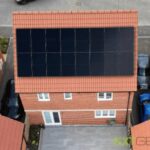 Harnessing the power of the sun is an attractive proposition for many UK homeowners. But before diving headfirst into solar energy, a crucial question arises: how many solar panels can fit on your roof? The answer, unfortunately, isn’t a simple one. It’s a captivating interplay between several factors, each one requiring careful consideration. Understanding Your… Read more: Unveiling the Perfect Fit: How Many Solar Panels Can Your Roof Handle?
Harnessing the power of the sun is an attractive proposition for many UK homeowners. But before diving headfirst into solar energy, a crucial question arises: how many solar panels can fit on your roof? The answer, unfortunately, isn’t a simple one. It’s a captivating interplay between several factors, each one requiring careful consideration. Understanding Your… Read more: Unveiling the Perfect Fit: How Many Solar Panels Can Your Roof Handle? - Powering Care with Sunshine: How Solar Panels Benefit Nursing Homes
 Nursing homes are the backbone of our communities, providing essential care for our elderly population. But keeping these facilities running smoothly requires a significant amount of energy – lighting, heating, cooling and medical equipment all contribute to a hefty energy bill. This is where commercial solar panels come in, offering a win-win solution for both… Read more: Powering Care with Sunshine: How Solar Panels Benefit Nursing Homes
Nursing homes are the backbone of our communities, providing essential care for our elderly population. But keeping these facilities running smoothly requires a significant amount of energy – lighting, heating, cooling and medical equipment all contribute to a hefty energy bill. This is where commercial solar panels come in, offering a win-win solution for both… Read more: Powering Care with Sunshine: How Solar Panels Benefit Nursing Homes - Who are NXTGEN Energy Ltd?
 NXTGEN Energy Ltd are a solar energy company based in Rayleigh, Essex, UK. They specialize in the installation of solar panels, battery storage systems, and electric vehicle chargers for homes and businesses across the UK. They are MCS certified, which means they meet the Microgeneration Certification Scheme’s standards for quality and safety. This makes them… Read more: Who are NXTGEN Energy Ltd?
NXTGEN Energy Ltd are a solar energy company based in Rayleigh, Essex, UK. They specialize in the installation of solar panels, battery storage systems, and electric vehicle chargers for homes and businesses across the UK. They are MCS certified, which means they meet the Microgeneration Certification Scheme’s standards for quality and safety. This makes them… Read more: Who are NXTGEN Energy Ltd? - Why UK Homeowners with Solar Panels Need Bird Proofing (Beyond the Basics)
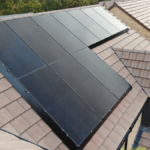 Imagine waking up to the quiet hum of your solar panels, generating clean energy to power your home. It’s a beautiful image, symbolizing lower electricity bills and sustainability. But what if a gang of birds decided the solar panels on your roof were the perfect spot for their new condo complex? Unfortunately, this idyllic scene… Read more: Why UK Homeowners with Solar Panels Need Bird Proofing (Beyond the Basics)
Imagine waking up to the quiet hum of your solar panels, generating clean energy to power your home. It’s a beautiful image, symbolizing lower electricity bills and sustainability. But what if a gang of birds decided the solar panels on your roof were the perfect spot for their new condo complex? Unfortunately, this idyllic scene… Read more: Why UK Homeowners with Solar Panels Need Bird Proofing (Beyond the Basics) - How AI could supercharge your solar panels
 Imagine stepping outside on a crisp January morning, a mug of steaming tea warming your hands. You glance at your rooftop, not with dread at energy bills, but with a mischievous grin. Why? Because the sun, that cheeky orb in the sky, is being squeezed for every juicy watt it holds thanks to your AI-powered… Read more: How AI could supercharge your solar panels
Imagine stepping outside on a crisp January morning, a mug of steaming tea warming your hands. You glance at your rooftop, not with dread at energy bills, but with a mischievous grin. Why? Because the sun, that cheeky orb in the sky, is being squeezed for every juicy watt it holds thanks to your AI-powered… Read more: How AI could supercharge your solar panels - Unprecedented growth in the renewable sector driven by solar power
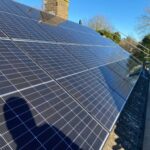 The year 2023 marked a significant milestone in the realm of renewable energy, as solar power emerged as the driving force behind a remarkable 50% surge in global capacity. This remarkable achievement was revealed in the International Energy Agency’s (IEA) Renewables 2023 report, solidifying it as the 22nd consecutive year of record growth in renewable… Read more: Unprecedented growth in the renewable sector driven by solar power
The year 2023 marked a significant milestone in the realm of renewable energy, as solar power emerged as the driving force behind a remarkable 50% surge in global capacity. This remarkable achievement was revealed in the International Energy Agency’s (IEA) Renewables 2023 report, solidifying it as the 22nd consecutive year of record growth in renewable… Read more: Unprecedented growth in the renewable sector driven by solar power - The Allure of Solar and the Pitfalls of Price
 The allure of renewable energy is undeniable. Lowering your carbon footprint while achieving energy independence – it’s a win-win proposition. However, navigating the solar investment landscape can be fraught with hidden costs, particularly when lured by the siren song of bargain-basement prices. Consider the contrasting paths of Dean and Richard, both homeowners embarking on the… Read more: The Allure of Solar and the Pitfalls of Price
The allure of renewable energy is undeniable. Lowering your carbon footprint while achieving energy independence – it’s a win-win proposition. However, navigating the solar investment landscape can be fraught with hidden costs, particularly when lured by the siren song of bargain-basement prices. Consider the contrasting paths of Dean and Richard, both homeowners embarking on the… Read more: The Allure of Solar and the Pitfalls of Price - Why Manufacturing & Logistics Businesses need to invest in Warehouse Solar Panels
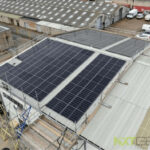 Electricity and energy consumption are major expenses for manufacturing and logistics businesses, as they need them to operate machinery, illuminate and heat their facilities, and transport their goods. Warehouse solar panels can significantly reduce these costs and enhance the company’s financial performance, while also contributing to its sustainability objectives. Installing commercial solar panels on your… Read more: Why Manufacturing & Logistics Businesses need to invest in Warehouse Solar Panels
Electricity and energy consumption are major expenses for manufacturing and logistics businesses, as they need them to operate machinery, illuminate and heat their facilities, and transport their goods. Warehouse solar panels can significantly reduce these costs and enhance the company’s financial performance, while also contributing to its sustainability objectives. Installing commercial solar panels on your… Read more: Why Manufacturing & Logistics Businesses need to invest in Warehouse Solar Panels - Advantages of Solar Panels in the UK
 Solar Power: Shining a Light on the UK’s Green Future The UK’s embrace of renewable energy is blossoming, with solar power playing a leading role. This surge reflects a national commitment to a greener, more sustainable future. But what exactly are the benefits of solar panels for UK homeowners and businesses? Let’s dive into the… Read more: Advantages of Solar Panels in the UK
Solar Power: Shining a Light on the UK’s Green Future The UK’s embrace of renewable energy is blossoming, with solar power playing a leading role. This surge reflects a national commitment to a greener, more sustainable future. But what exactly are the benefits of solar panels for UK homeowners and businesses? Let’s dive into the… Read more: Advantages of Solar Panels in the UK - Why Your Business Should Invest in Commercial Solar Panels
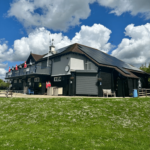 Solar panels on houses and residential properties have become increasingly common in the last year. The number of individuals seeking a more sustainable way of living continues to grow each year. However, the pursuit of a greener existence is not limited to domestic life. Investing in commercial solar panels is an excellent way to reduce… Read more: Why Your Business Should Invest in Commercial Solar Panels
Solar panels on houses and residential properties have become increasingly common in the last year. The number of individuals seeking a more sustainable way of living continues to grow each year. However, the pursuit of a greener existence is not limited to domestic life. Investing in commercial solar panels is an excellent way to reduce… Read more: Why Your Business Should Invest in Commercial Solar Panels

